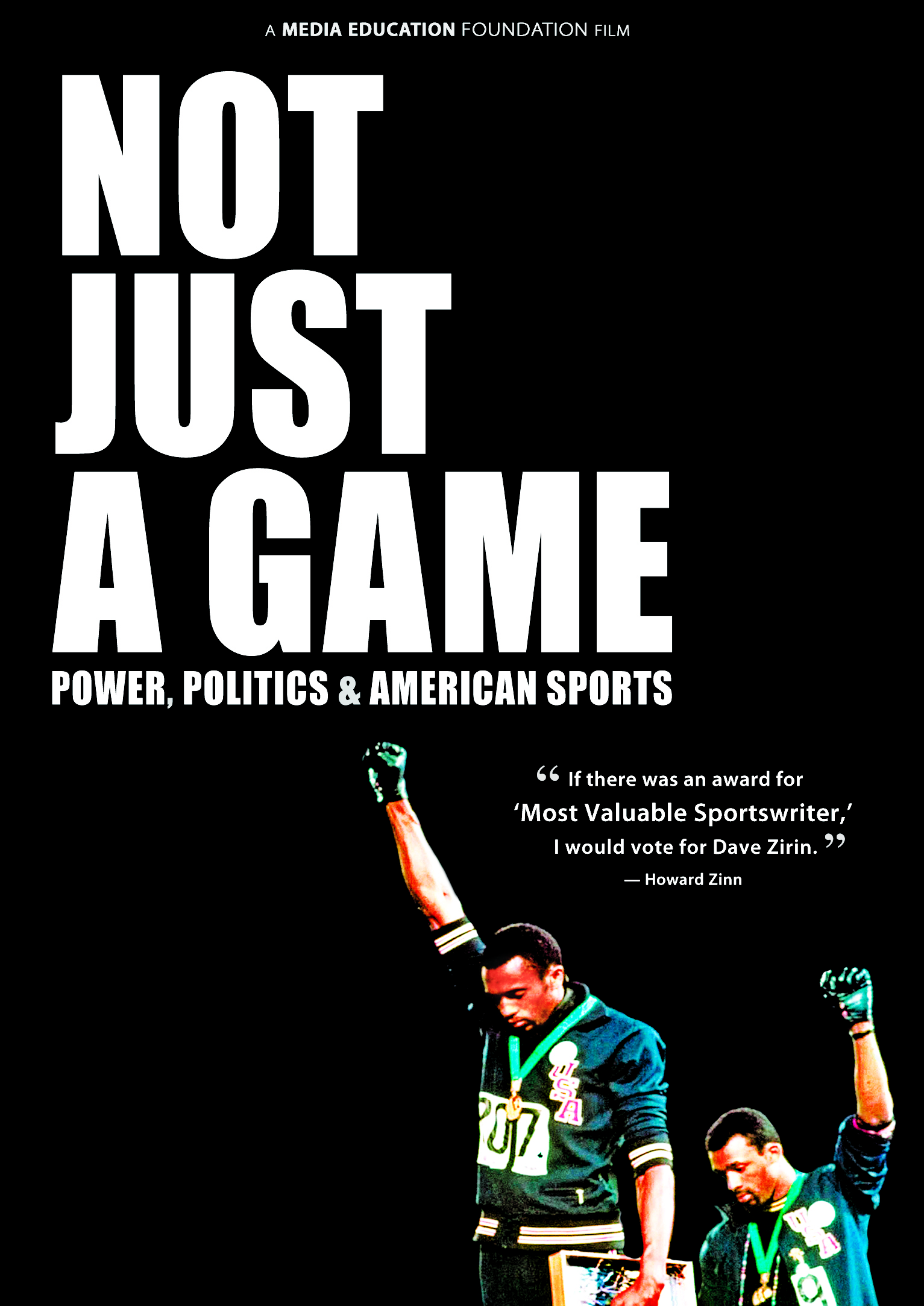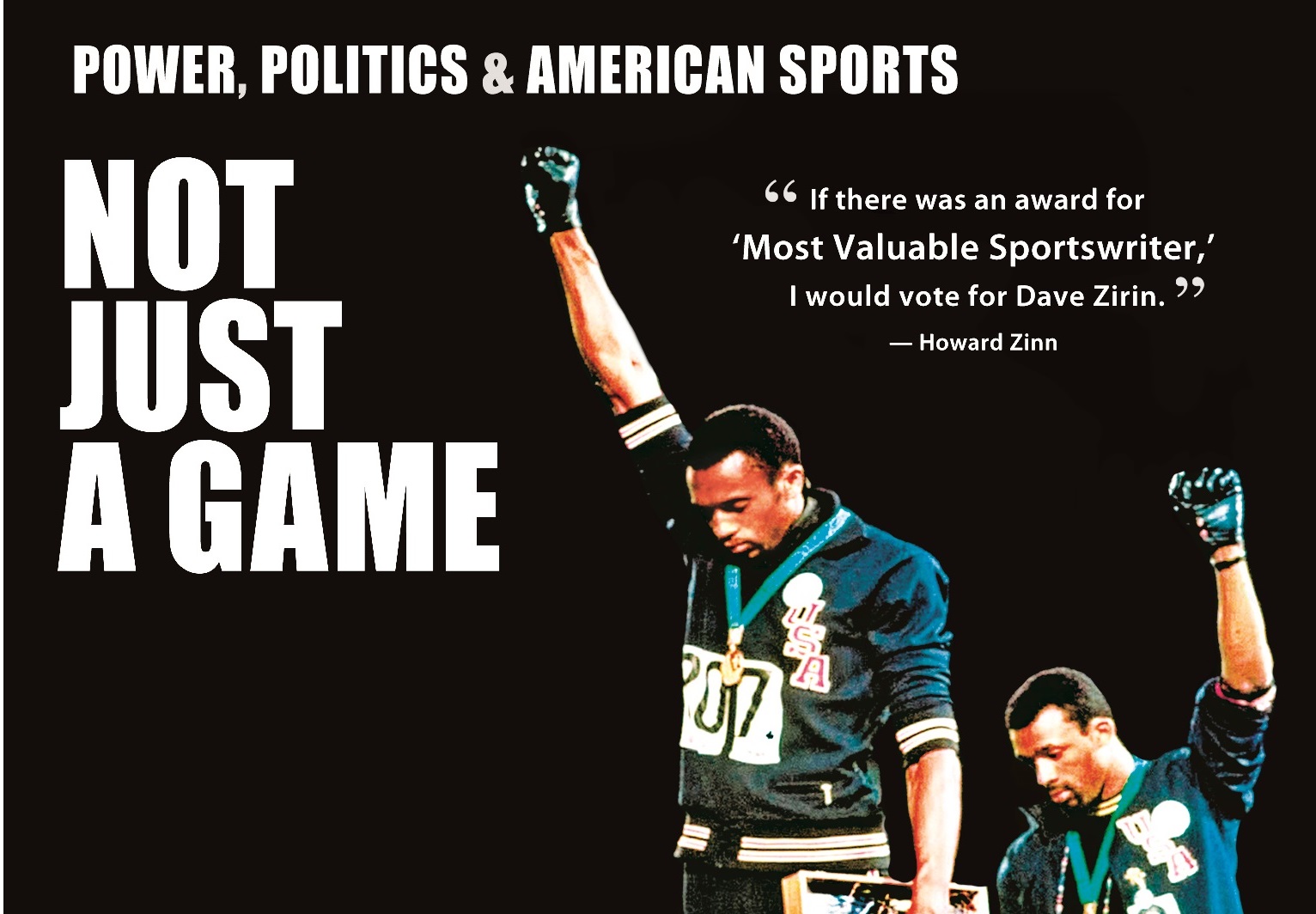 Not Just a Game: Power, Politics, & American Sports
Not Just a Game: Power, Politics, & American Sports
Directed by Jeremy Earp
Written by Dave Zirin, Jeremy Earp and Chris Boulton Media Education Foundation
62 minutes. BETA/DVD/DVCAM; free online study guide, transcript, and other resources.
This compelling documentary, based on Dave Zirin’s bestselling book “The People’s History of Sports in the United States”, asserts that sports are a cultural and political force that reflects and shapes our national identity – even though “we’ve been told that sports and politics don’t mix.” As the film’s passionate narrator, Zirin juxtaposes historical and recent images from his wide experience as sports editor of The Nation magazine and commentator on sports in print, radio, television and online.
Ever since seeing a team mascot beat up a man in Arab clothing at a basketball game in Madison Square Garden just before the Gulf War in 1991, Zirin has built his career on “trying to understand that murky place where sports and politics collide,” he says. American sports have always shaped “cultural attitudes, norms and power arrangements.” Sports history reveals our struggles with these structures, which affect our “notions of who we are and how we see each other through gender, race, and class.”
Zirin gives tennis champion Billie Jean King enormous credit for fighting for women’s equality in sports and for gay liberation; he says homophobia still keeps gay male athletes in the closet.
Before Title IX – the 1972 law requiring equal opportunity for girls in sports education – only one in 35 girls played sports. Today it’s one in three – but sports media coverage has “nearly evaporated,” says Zirin, “from a high of 9 percent of airtime devoted to women athletes in 1999 to an unbelievable 1.6 percent in 2009.”
The film’s final third is devoted to the barrier of race. “White male power was so embraced as the athletic norm that the credibility of black athletes was thrown into as much question as the athletic abilities of women and gays,” says Zirin. In 1910, Jack Johnson, the first African-American heavyweight boxing champion, defeated his white challenger before a hostile all-white crowd, followed by riots in the streets that killed 19 “Negroes” and five whites.
Fast forward 40 years: Clips from The Jackie Robinson Story, the 1950 biopic of the first African-American to play Major League Baseball, show Robinson determined to “make the grade,” asserting that “democracy works for those who are willing to fight for it.”
Such statements make it seem that “Robinson just smiled, worked hard, never complained, and eventually broke the color barrier,” says Zirin. But they conceal the racism exposed in a CBS News report of the Ku Klux Klan threatening to shoot Robinson if he appeared on Atlanta’s baseball field. In the 1960s, Robinson joined Martin Luther King in the civil rights movement, speaking out about the structural barriers to individual achievements like his.
Zirin contrasts boxing star Muhammad Ali – who merged civil rights and anti-war struggles by joining the Nation of Islam and resisting the Vietnam War draft – with later superstars such as Michael Jordan, who now runs a division of Nike. When Jordan played basketball for the Chicago Bulls, “he too often acted as though Nike ran him,” quips Zirin.
In contrast to Jordan’s self-interest, the story that concludes this thought-provoking film is about unselfish commitment. In the 1968 Summer Olympics, African-American runner Tommie Smith won a gold medal and John Carlos won a bronze. They carried their shoes to the winners’ platform “to protest poverty in America,” says Zirin. As the national anthem played, they raised their fists in black gloves, showing solidarity with blacks everywhere.
For this gesture, meant to inspire others, Smith and Carlos were expelled from the Olympics. “Their athletic careers were ruined,” says Zirin. “They received death threats and were treated like traitors to their country.” They and their families suffered for years.
“We are five steps below the ladder,” Carlos told a BBC interviewer, “and every time we try to touch the ladder, they put their foot on our hands.”
Zirin makes a convincing case that some of the most crucial struggles and victories in sports have occurred in the arena of social justice. This incisive film invites us to ponder the deeper significance of sports in American culture for all ages, genders and colors.
Contact: (800) 897-0089
www.mediaed.org.
































